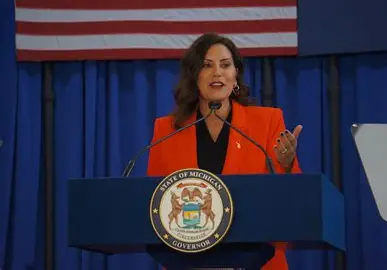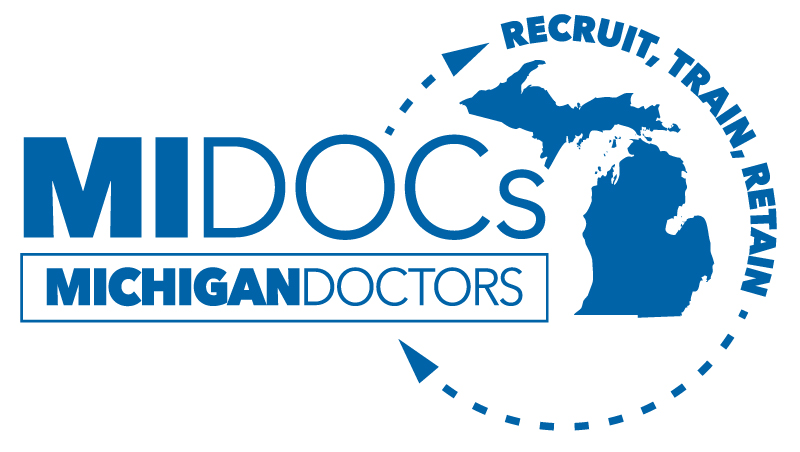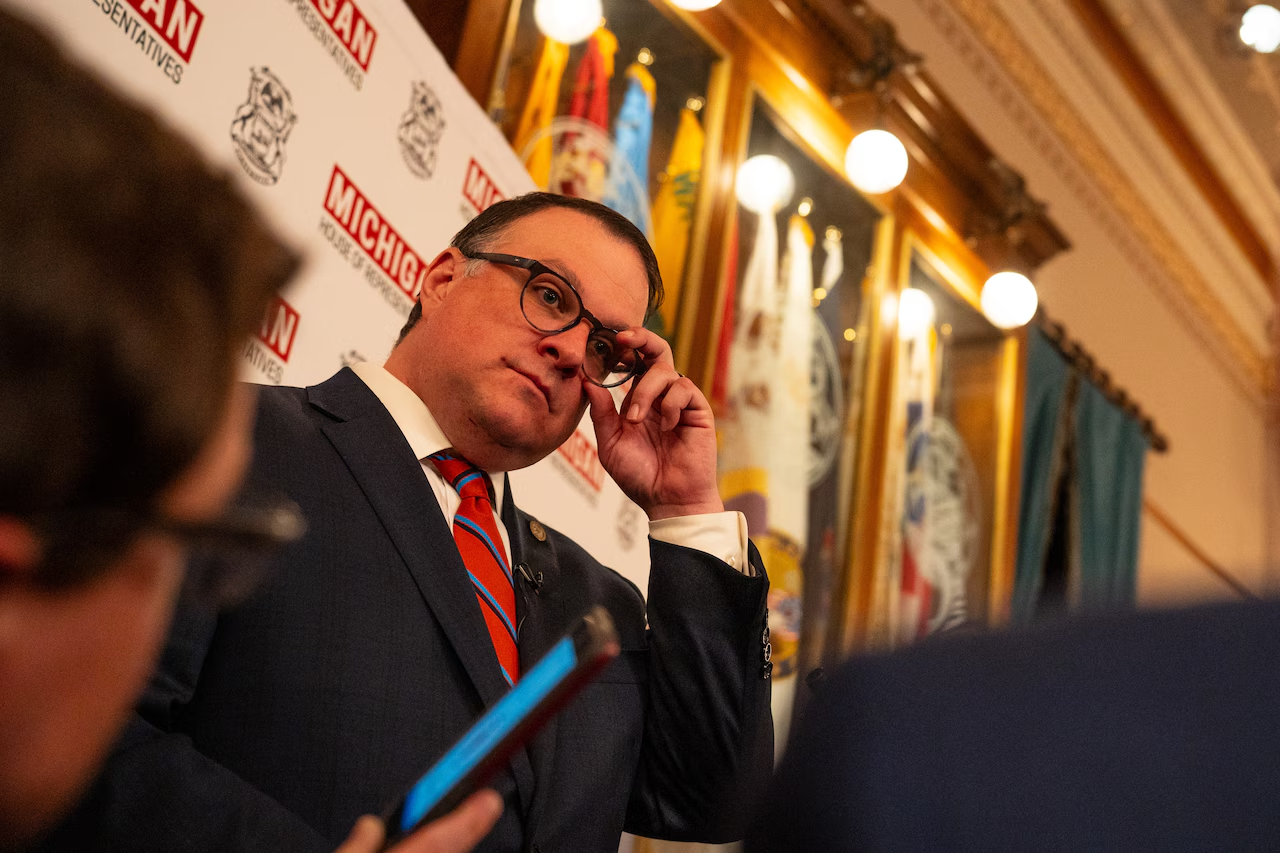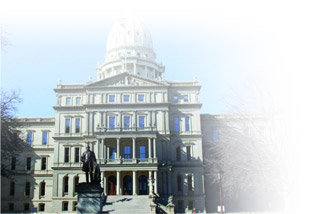
|
|||||||
|
 Whitmer Calls for Early 2026 Special Election in 35th Senate District Whitmer Calls for Early 2026 Special Election in 35th Senate DistrictAfter nearly eight months and regular calls by Republicans and even some Democrats to call a special election for the vacant 35th Senate District seat, Governor Gretchen Whitmer finally made the announcement Friday, calling for a special primary and a special general election. With the directive for a special election on Friday, Whitmer ended the nearly 250-day period of uncertainty since U.S. Rep. Kristen McDonald Rivet, D-Bay City, resigned from the Senate on January 3 before being sworn into Congress. The special primary election was set for February 3, 2026, and the special general election was set for May 5, 2026. In Whitmer's letter to the Department of State, the deadline for filing for the race was set at 4 p.m. on September 30. "Today, I am calling a special election for the 35th Senate District that represents parts of Bay, Midland and Saginaw counties," Whitmer said in a statement. "We have a lot of good work to get done before the end of next year. Michiganders want us to create jobs and grow the economy, invest in schools and boost literacy rates, and, of course, fix those damn roads. I look forward to working with the next state senator from this district to tackle these issues and more." The delay in calling the special election prompted repeated attacks from Republicans throughout the year, pointing to past precedent in which special elections have typically been called within days or a few weeks. Senate Minority Leader Aric Nesbitt, R-Porter Township, in a statement took aim at the delay from Whitmer and the effect it has had on residents of the district. "The 270,000 people of Michigan's 35th Senate District are struggling to make it in Michigan, and for over 400 days, they will be without a state senator to fight for them," Nesbitt said. "This is a complete failure of leadership from the governor, who should be ashamed for abandoning these hardworking families." More recently, several residents of the district filed a lawsuit with the Court of Claims seeking an order compelling Whitmer to announce the special election. On Thursday, Whitmer filed a response asking for summary disposition in the lawsuit, saying the plaintiffs have no standing and that the constitutional separation of powers prevents courts from being able to issue mandamus or injunctive relief against a sitting governor (See Gongwer Michigan Report, August 28, 2025). Friday's call for the special election likely makes the lawsuit moot. It also raises the question of who might file ahead of the September 30 deadline for the special election. Three Democrats have already filed to run for the seat: Saginaw County Democratic Party Chair Brandell Adams of Bridgeport Township, Chedrick Greene of Saginaw and Board of Education Chair Pamela Pugh of Saginaw. Rep. Timmy Beson, R-Bay City, announced in late 2024 he was going to run for the seat. There has also been speculation that Rep. Bill Schuette, R-Midland, might enter the race. In a Friday statement, Schuette called Whitmer's timing for the elections a "case of politics at its worst." "We will have an opportunity to elect leaders who will fight for more accountability in government and better performing schools, a more affordable economy and a stronger state," Schuette said. "Change is ahead. In the coming days, I look forward to announcing how I plan to serve the people of our state and work collaboratively to solve the serious issues we face." The response from both sides of the political aisle to the announcement was swift in a flurry of statements. "We are excited to elect another Democrat to fill the very large shoes left by Congresswoman Kristen McDonald Rivet," Michigan Democratic Party Chair Curtis Hertel Jr. said. "Unlike Republicans, Michigan Democrats are a party by and for working Michiganders, and we stand ready to elect another champion for the families of the 35th Senate District. Game on." Greg Manz, a consultant with communications firm Wytherson Media who previously worked for the House Republican Campaign Committee and as press secretary for House Speaker Matt Hall, R-Richland Township, took aim at the Democrats. He called the timing of the announcement a public relations disaster for Democrats. "Republicans will flip this Senate seat not only because of the disrespect Governor Whitmer has shown to 270,000 Michiganders but also because Senate Democrats' priorities are out-of-touch as demonstrated by their bloated bureaucratic Big Brother budget," Manz said. Sen. Darrin Camilleri, D-Trenton, chair of the Senate Democratic caucus's campaign committee for the 2026 cycle, welcomed the news. "It's an opportunity to show our Republican colleagues, from Donald Trump down to Lansing, that their agenda is out of step with Michigan families," Camilleri said. "This election will be a chance to hold them accountable and keep Michigan moving forward." Sen. Roger Hauck, R-Mount Pleasant, said the governor's decision was a political move that has done a disservice to the people of the 35th district. "Let's not pretend that finally calling the election was about principle – it was about politics from the very beginning," Hauck said. "Her long-overdue action today doesn't erase the months of neglect, the voices that went unheard, or the purely political display. I'm glad the people of the 35th District will finally get their seat back. But the delay speaks volumes." Michigan Forward Network spokesperson Mary Drabik agreed. "Whitmer chose to ignore the district residents for months with vague commitments, only to leave them without representation for over 500 days by the time the election is certified," Drabik said. "This egregious inaction is a new low for Gretchen Whitmer." The 35th Senate District consists of parts of Bay, Midland and Saginaw counties and is one of the most evenly split and competitive Senate districts in the state. Democrats hold a 19-18 majority in the Senate. If the Republicans were to win the seat there would be a 19-19 tie and Democrats would need the lieutenant governor to serve as a tie-breaking vote.  House Cuts to MIDOCS Program Stuns Physicians. They Warn of Serious Consequences House Cuts to MIDOCS Program Stuns Physicians. They Warn of Serious ConsequencesThe House Republican budget makes cuts to nearly every department budget, and the Department of Health and Human Services was no exception. One of the programs cut was the MiDOCS program, which supports medical doctors through tuition loan relief for services provided in underserved and impoverished communities in the state. "The MIDOCs program has proven to be one of Michigan's most effective tools for addressing physician shortages, with 94% of participating doctors continuing to practice in the very communities where they trained," said Dr. Amit Ghose, president of the Michigan State Medical Society. "It is money effectively and efficiently spent, and cutting our state's funding would reduce residency slots and loan repayment support, hurting Michigan's ability to recruit and retain doctors in underserved areas." Dr. David Walsworth, also of the Michigan State Medical Society, said although he understood the state only has so much money to spend, the MiDOCS program did not make sense to cut. "It's been very successful," he said. "94% of the docs have stayed in their communities… these are the rural counties where we desperately need people." Additionally, the MiDOCS program helps physicians that are going into areas that have less earning potential, such as family medicine and psychiatry, Walsworth said. "These are often people who are first generation in medicine. They may have been the first generation in their family to go to college. These are the people who look like the patients they're going to see, and that's a very powerful thing," Walsworth said. The House version of the Department of Health and Human Services budget is split into three categories: Medicaid, Public Health and Human Services. All saw cuts. The Medicaid portion of the budget was cut by $3.7 billion, the Public Health portion $92.5 million and the Human Services portion by about $1 billion. The MiDOCS program falls under the Human Services portion of the budget. Over 90% of Michigan's 83 counties have at least a partial designation as a primary care health professional shortage area (HPSA), according to the MiDOCS state report from 2024. In 2017, the Legislature appropriated $500,000 in funds to develop an implementation plan, which included proposals from Central Michigan University, Michigan State University, Wayne State University and Western Michigan University for increasing residency slots to address the needs in their communities. Since then, $27.9 million of state appropriations, combined with contributions from the institutions and associated federal funds, have been used to create 124 new residency slots, according to MiDOCS Funding from the state is combined with university contributions and associated federal funds to create 24 new residency slots for the program. To leverage state funding, the MiDOCs institutions work closely with the Department of Health and Human Services each year to obtain federal matching funds. "It has three sources of funding, and all of those are at risk right now," Walsworth said. "There's only so much money to go around…I started ringing the alarm bell several months ago because I anticipated where we'd be at." MiDOCS is a relatively small program, Walsworth said, but it does a lot and is consistently something the Medical Society advocates for to lawmakers. "This has largely been supported in a bipartisan fashion in the past," he said. "MiDOCS is a program… that tries to address the ongoing physician shortage of that we have." The House has frequently discussed the shortage of medical professionals in Michigan this term and has moved bills to relax licensing requirements and increase scope of practice for nurse practitioners (See Gongwer Michigan Report, May 14, 2025). Walsworth said he would urge lawmakers to continue funding the MiDOCS program, even if it's just at current levels. "There's a lot of things that can still happen and hopefully will, he said. "(MIDOCS) is doing a lot… Two-thirds of practicing physicians are at or near retirement age…How are they going to explain to their constituents when they don't have a doctor?... The people of Michigan deserve better." JOIN DCD AT A FUN NIGHT OUT FOR A GREAT CAUSE!: 
DCD IS A FULL-SERVICE, BI-PARTISAN, MULTI-CLIENT LOBBYING FIRM REMEMBER ALL OF DCD'S SERVICES: ARTICLES OF POLITICAL INTEREST:
As Michigan Lawmakers Fight, Bi-Partisan Transparency and Public Safety Bills Flounder Devos Family Not United on Michigan Governor Candidate Marijuana News, Updates, & Articles of Interest
We are here to help you with: municipal lobbying, license application writing and assistance, business plans, state required operations manuals and compliance, facility design, corporate structure, and design and branding. We are experts in both medical and recreational cannabis policy and have been in the space for over ten years. We welcome any opportunity to work with you in the future! ARTICLES OF CANNABIS INTEREST: Michigan Cannabis Regulator Finds More Vape Carts That Contain Potentially Unsafe MCT Oil Doing Things Differently DCD is rebranding, and our bottom line is your bottom line. We are striving to create and foster strong relationships with clients and lawmakers, deliver results with strong ethics and class, but above all else, out-hustle and out-smart our competition every day to be the very best. We’re making chess moves while others are playing checkers. Everything we do is with you in mind, we’re doing things we’ve never done before and aggressively pursuing opportunities. The time is now. DCD has taken our firm to the next level and your involvement and investment paired with our knowledge and expertise is going to launch the great state of Michigan forward. |
|||||||
|
|||||||

Newsletter
Early September 2025 Newsletter
Contact Us
Address
Phone
Copyright © Dunaskiss Consulting and Development Inc.

 House Republicans Pass Budget
House Republicans Pass Budget THE DCD MARIJUANA TEAM: YOUR COMPETITIVE EDGE!
THE DCD MARIJUANA TEAM: YOUR COMPETITIVE EDGE!











